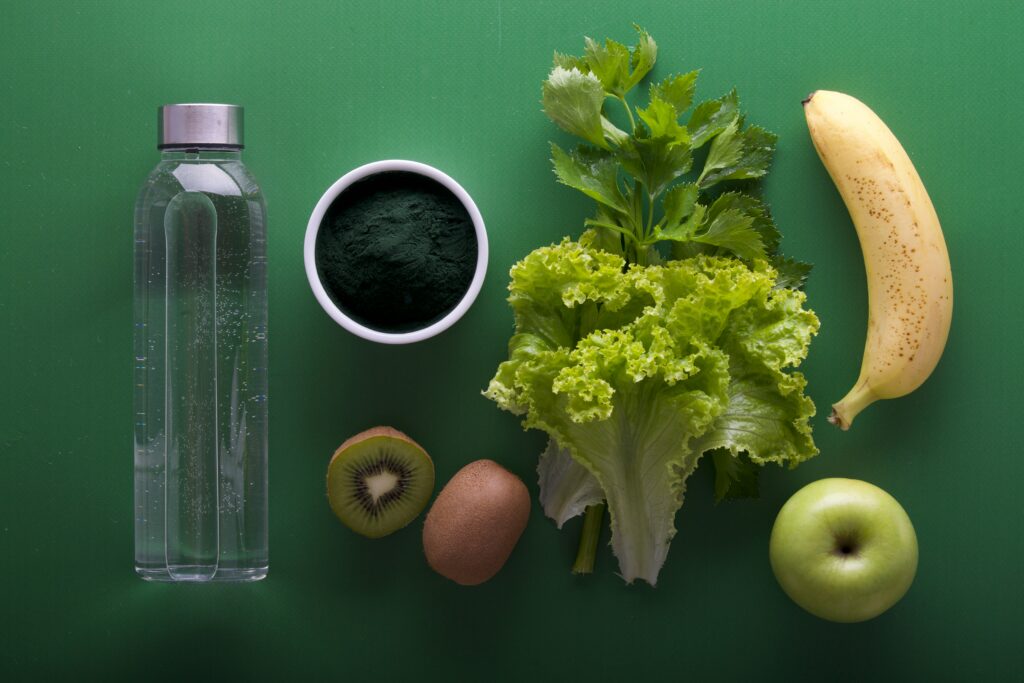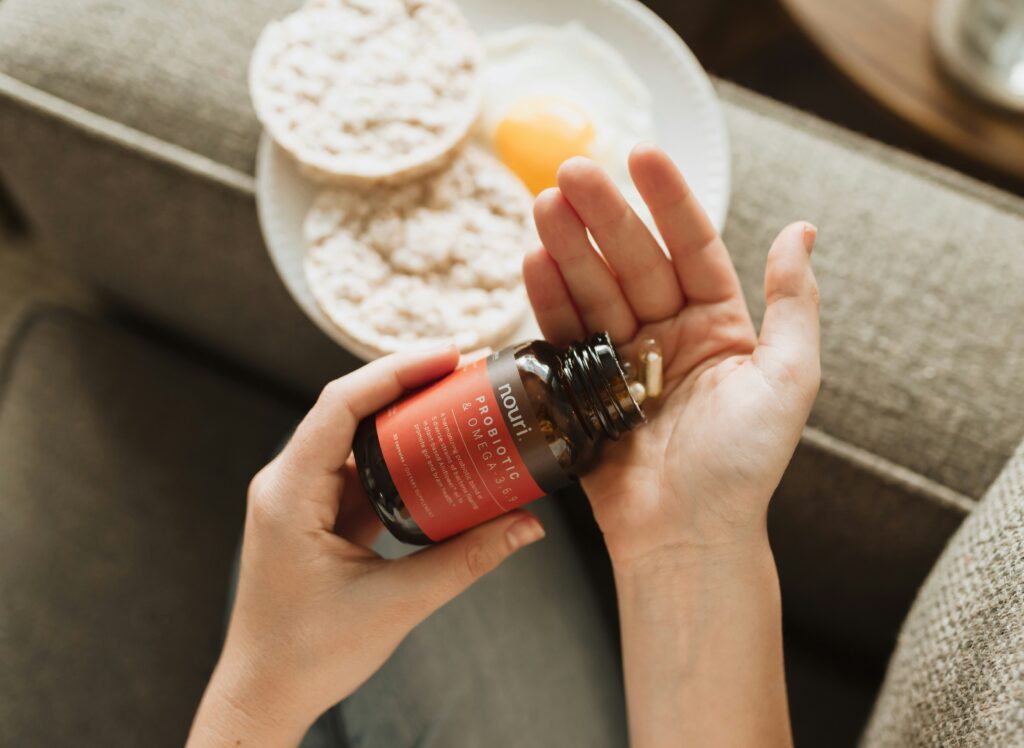News Team member Alexa Morales describes the need for new prenatal nutrition guidance to include fiber, as it promotes stronger microbiomes and better health outcomes in mothers and their babies.
The Future of Gut Health May Already Be Inside You
Exploring the cutting-edge research and technological advances that could transform our understanding and treatment of gut health.
By Saanvi Nayar
The “gut health” trend has taken over social media platforms and grocery store aisles alike. The advertised magic remedies for a healthy microbiome range from daily shots of aloe vera juice to a cocktail of morning supplements. However, as gut health business models only grow in Europe and the U.S., it also grows prolifically as a subject of study, colloquially named “the latest trend in science.” One of the most promising research areas in the field does not come in pretty packaging or TikTok influencer brand deals; fecal matter transplants have taken over the scientific gut health community and offer interesting results.

Fecal matter transplants, also called bacteriotherapy or intestinal microbiota transplants, involve what one could intuitively assume: the transfer of the fecal matter of one “healthy” individual to one requiring a gut-related ailment.
Historically, the procedure has been performed for patients with Clostridium difficile or C.diff, a bacterial overgrowth usually induced by antibiotics that wipe out the gut microbiome. The proliferation of C. diff bacteria can cause painful diarrhea and inflammation, potentially fatal. In 2015, the first pediatric fecal matter transplant in Georgia was performed by Dr.Jeffrey Lewis of GI for Kids of Atlanta on a toddler with bacterial overgrowth. In an interview with Fox News, Dr.Lewis said, “You’re putting a whole new ecosystem of balance in. So, it’s the ultimate probiotic. The bacteria take hold; it starts to repopulate.”
Probiotics are live microorganisms meant to help with providing diversity to the microbiome, aiding digestion, and alleviating constipation among other listed benefits. Probiotics can be found in grocery stores, sold as supplements in grocery stores, or listed on the back of food items such as yogurt. However, Dr.Lewis calls the fecal matter transplant an ultimate probiotic because there is no other procedure, product, or research development that offers the replication of a healthy microbiome.

Dr. Nirja Mehta is a lead researcher at Emory University’s Fecal Matter Transplant Center. Her research has looked at FMT in regards to C.diff, and her masters focused on the composition of gut microbiomes in Atlanta during the COVID-19 pandemic. She said, “Because FMT is a heterogeneous product, it’s a lot of different people’s stool, it has not been FDA approved.” The team, led by researcher Dr.Colleen Kraft, has “been studying the two products that have been FDA approved regarding FMT, called Reboyta and Vowst. The hope is to down the line use these fecal matter products for something beyond C.diff, like UTIs.”
While both Reboyta and Vowst are donor-derived, Reboyta is a pill inserted one time rectally that encapsulates a standardized range of microbiota. Vowst involves spores from a range of fecal samples, taken four times so that they can germinate.
Regulatory Hurdles and Research Insights
Currently, the Federal Drug Administration (FDA) has to approve fecal matter transplants and these approvals are selectively for patients with C. diff. However, recent research has displayed potential uses for the procedure in medical areas such as fatty liver disease, cancer, HIV, and rheumatoid arthritis. Dr. Michael Silverman is a pioneer in the field of these transplants and is working on a team at the Lawson Health Research Institute of the London Health Sciences Center that is expanding upon this research; they have successfully correlated the use of FMT alongside immunotherapy to reduce tumor size in those diagnosed with aggressive melanoma.
Researchers have proposed young individuals bank their fecal matter for storage so that later in life, they have the option to replenish their gut microbiomes. Currently, this idea needs to consider the lack of financial access. However, OpenBiome in Somerville, Massachusetts is the first stool bank to offer individuals the option to bank their stool for the possible need of future treatment of C. diff. However, Dr.Scott T. Weiss of Harvard University claims that these samples could be used to treat a range of autoimmune diseases, and with financially accessible modes of storage, could be beneficial to many more individuals than currently being treated.
Results from a March 2024 study by The American Gastroenterological Association (AGA) conclude guidelines that do not recommend fecal matter transplants as a treatment outside of select cohorts of patients with C.diff. However, there are researchers like Dr.Weiss and Dr.Mehta that offer some pushback. “The next frontiers for FDA approval could be IBD, UTIs, or even some psychiatric conditions,” Mehta said. “I consider FMT as a sledgehammer approach to replace everything. It will lead the way for more tailored products that can come on behind that to say that you can affect the microbiome in some way.”

Technological Innovations and Future Directions
A healthy gut microbiome is difficult to adequately capture, but symptoms of an improperly functioning gut can be seen through a range, including fatigue, constipation, breakouts, vitamin deficiencies, etc. Luca Cuccia is the CEO of Injoy, an app that utilizes three separate tests, one solely for fecal matter, to help one become in tune with the composition of their gut through personalized reporting and scientific advice. In an interview with Mr.Cuccia, he said, “We’ll tell you about your microbiome but we’ll also capture your symptoms because that’s something that a dietician, general practitioner, gastroenterologist, etc. could use to make a decision with.”
This app presents a technological frontier of personalized microbiome care from the comfort of one’s toilet. In response to questions about where CUccia sees the field of fecal matter transplants going, Cuccia said, “It’s quite complicated because there’s no gold standard of a microbiome or of a good fecal sample,” recognizing that within the role of Injoy “comes down to profiling who could be a good donor, improving the fecal donation centers we have and making the procedure easier to research.”
With more research in the field comes more potential possibilities for the beneficial usage of FMT. Certain FDA and AGA regulations stand and should be abided by. But as clinical trials push the boundaries of FMT usage, whether it be in the evolved form of encapsulation or technology-based personalized medicine, this procedure retains the potential to transform the gut health trend as we know it.

